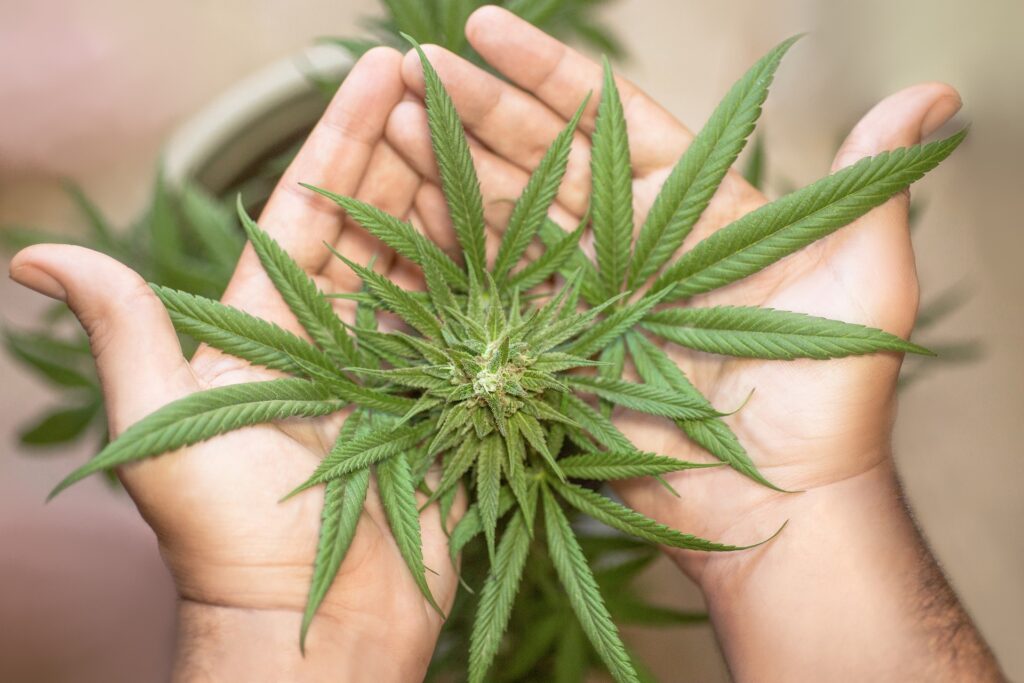Why Recreational Cannabis Should Be Legal in 2024
There are so many differing opinions on recreational cannabis. Many people wonder if they should be allowed to use cannabis just for fun. Right now, only some states let adults buy marijuana for more than just medicine. This article explains why making it okay to use cannabis everywhere in 2024 is a smart move.
Keep reading – we’ve got the facts!
The Current State of Recreational Marijuana Legalization
Recreational marijuana is currently legal in 18 states and Washington D.C., with more states considering legalization measures. Public opinion on legalization has shifted in favor, with polls showing a majority of Americans supporting the move.
The potential benefits of legalization include reducing crime associated with illegal marijuana trade and increasing access to medical cannabis for those who need it.
Where it’s legal
Several states across the United States have embraced the wave of cannabis reform, making recreational marijuana legal for adults. These include places like Colorado, California, Oregon, and a growing list of other regions.
Each state has crafted its own set of marijuana laws and regulations governing the sale, possession, and use of cannabis.
In these areas where legalization measures have passed, dispensaries dot the landscape offering a variety of cannabis products. Users can enjoy their choice freely within the bounds of state legalization without fear of prosecution under local cannabis policy.
It’s clear that the movement towards federal legalization gains momentum with each state that joins in reforming their approach to recreational drug use.
What the public thinks about recreational cannabis
Public opinion on the legalization of recreational cannabis has been evolving rapidly. Polls indicate that a majority of Americans now support legalizing cannabis for adult use, reflecting changing attitudes toward its medicinal and recreational properties.
Many view this shift as a sign of growing acceptance and recognition of the potential benefits of cannabis legalization.
Advocates argue that regulated access to recreational marijuana can generate significant tax revenue, create job opportunities, and stimulate economic growth in communities. Moreover, some believe that legalizing cannabis could lead to a reduction in illegal markets and free up law enforcement resources to focus on more serious crimes.
Potential benefits of legalization
Legalizing recreational cannabis could bring significant economic benefits. The industry has the potential to generate jobs and create new business opportunities, contributing to job growth and stimulating local economies.
Additionally, legalizing marijuana can lead to a substantial increase in tax revenue for states. This income can be redirected into public programs such as education and healthcare, benefiting communities across the nation.
Decriminalization of marijuana could also decrease the burden on law enforcement agencies, allowing them to focus on more serious crimes. By regulating cannabis, authorities can ensure that products meet safety standards while also reducing the influence of illegal drug trafficking organizations in local communities.
Calming the Concerns of Opponents
Addressing fears of increased crime, addiction, teenage use, and drugged driving are crucial in the debate over recreational marijuana legalization. It’s important to address these concerns with evidence-based research and thoughtful policy implementation.
Addressing fears of increased crime
Legalizing recreational cannabis does not necessarily lead to increased crime rates. Studies have shown that in states where marijuana is legal, there hasn’t been a significant uptick in criminal activity.
Research indicates that legalization has even led to a decrease in certain types of crimes. Law enforcement can focus on more serious offenses when resources are not spent pursuing marijuana-related activities, ultimately making communities safer.
Communities should not fear an increase in crime if recreational cannabis becomes legal. Data suggests that regulation and oversight of the industry may actually contribute to decreased criminal activity associated with the illegal drug trade, as well as reduce strain on law enforcement resources.
Addressing fears of addiction
Legalizing recreational cannabis does not automatically lead to increased addiction rates. Instead, regulation can mitigate the risks associated with cannabis use by implementing age restrictions and education initiatives.
By treating addiction as a public health issue rather than a criminal one, society can better address individuals struggling with substance abuse.
Acknowledging and addressing concerns about addiction is an important step in developing responsible cannabis policy that prioritizes the well-being of all citizens. As we delve into the potential benefits of legalizing recreational marijuana, it’s crucial to dispel misconceptions and focus on evidence-based approaches to minimize harm and promote informed decision-making among consumers.

Addressing concerns about teenage use
To address concerns about teenage use, it’s important to emphasize the need for strict regulations and age restrictions. Implementing stringent measures, such as identification checks and penalties for selling to minors, can help mitigate the risk of underage consumption.
Educating young people about the potential negative effects of cannabis on developing brains can also play a crucial role in preventing teenage use. Furthermore, allocating tax revenue from legalized marijuana towards youth education programs on substance abuse could further discourage adolescent experimentation with cannabis.
Creating a robust framework focused on prevention and education is essential in safeguarding against increased teenage access and use of recreational cannabis. The focus should be on ensuring that legalization efforts prioritize the protection of vulnerable populations while also promoting responsible adult usage within a regulated market.
Addressing concerns about drugged driving
Legalizing recreational cannabis comes with concerns regarding drugged driving, but it’s important to note that laws are in place to prohibit impaired driving, including under the influence of marijuana.
Regulatory measures can ensure roadside testing for impairment, similar to alcohol detection. Additionally, educational campaigns can inform the public about the risks and consequences of driving while high.
Enforcement of these policies is crucial for maintaining road safety and addressing worries about drugged driving.
To minimize fears about an increase in accidents caused by drugged driving after marijuana legalization, effective legislation must be implemented alongside robust enforcement practices and public education initiatives.
Economic Benefits of Legalizing Recreational Marijuana
– Job creation in the cannabis industry can provide employment opportunities for many individuals, potentially boosting the economy.
– Tax revenue from legal marijuana sales can contribute to public funds and be allocated towards various community programs and initiatives.
Job creation
Legalizing recreational marijuana will lead to significant job creation in various sectors of the economy. Cultivation, retail, distribution, and ancillary businesses such as packaging, marketing, and technology support are just a few areas that will contribute to employment growth.
With the increasing demand for legal cannabis products, there will be opportunities for diverse roles at every level within these industries.
Moreover, the legalization of recreational marijuana is poised to have a transformative impact on local economies by generating thousands of new jobs across different states. This economic boost provides not only financial stability but also pathways for career advancement and professional development within the fast-growing cannabis industry.
Tax revenue
Legalizing recreational cannabis would generate significant tax revenue that could be used to fund various public services. This revenue could help support education, infrastructure development, and healthcare initiatives in states where marijuana is legalized.
By taxing the sale of cannabis products, governments can create a new stream of income that benefits the community as a whole.
The tax revenue from legalizing recreational cannabis has the potential to alleviate financial strains on government budgets and stimulate economic growth. This additional funding source would provide opportunities for investment in important social programs, ultimately benefiting citizens and contributing to overall societal well-being.
Business opportunities
Legalizing recreational cannabis opens up a wide array of business opportunities. Entrepreneurs can venture into retail, cultivation, distribution, and even ancillary services such as branding, marketing, and packaging.
With the industry’s growth potential, there are countless opportunities for innovative startups to thrive in this emerging market.
The legalization of recreational marijuana also creates openings for ancillary businesses like security firms specializing in cannabis facilities and consulting firms catering to compliance with regulations.
Conclusion and Looking Ahead to 2024
In 2024, the legalization of recreational cannabis will bring about positive changes. Job creation and a boost in tax revenue are anticipated benefits. Businesses seizing opportunities in the cannabis industry will further stimulate economic growth.
The movement to legalize marijuana is gaining momentum, reflecting changing attitudes towards cannabis use. Looking ahead to 2024, it’s evident that legalizing recreational cannabis is poised to have far-reaching effects on society and economy.


